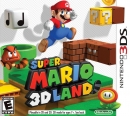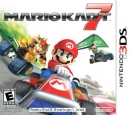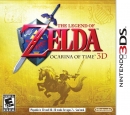padib said:
Soundwave said:
I don't think the PS2's end of life affected the PS3 in any way one way or the other.
Nobody cares what you did 12 months ago when it comes to making a purchase in the here and now for your gaming needs for the next several years. People don't really look at the past all that much.
They went from a dominant no.1 to a laughing stock no.3 in a blink of an eye, now kudos to them for being in that situation and putting their head down, taking the jeers, and working their ass off for the rest of the generation.
Can't feel sorry for yourself when that happens.
|
Everybody did that. What Sony didn't do is save the Vita.
Anyway, at this point it's your word against the word of another. How many people cared about the legacy of the PS2 is only opinion, we have no stats about appreciation. What we do know though, is that the PS2 HW sales continued for a long time after the launch of the PS3, leading to it having the all-time most sold units for a home console. Something I'm sure many will not fail to bring up.
So you might not care, but in most of our debates, what Sony did in supporting the PS2 actually matters. Now your word against mine, perhaps let's leave it at that.
|
The PS3 early sales are what they are though too. That's not really an opinion.
Where is all this love/appreciation/benefit of the doubt there, if it supposed to exist it sure as heck didn't benefit the PS3, 3DS all that much.
4/6 of the systems people consider "most successful" come from a history of having a predecessor that wasn't well supported for even 5 full years (let alone 6/7/8).
1. PS2 - predecessor had long support
2. DS - predecessor had less than 5 years of good support
3. PS4 - predecessor had long support
4. Wii - predecessor had less than 5 years of good support
5. XBox 360 - predecessor had less than 5 years of good support
6. Switch - predecessor had less than 5 years of good support, will obviously rise up this list.
The only 2/6 examples that had long good support from their predecessors are Sony systems. Biggest failures Vita, Wii U had predecessors with fairly long cycle support, biggest mid-tier disappointments, 3DS and XBox One also had predecessors with long support cycles.
You can't really debate any of that stuff.
The last Nintendo hardware system that was a large success succeeding a prior system with a long product cycle is the Game Boy Advance which is now almost 20 years ago, so they've had serious issues following up on systems with long product cycles for several decades now.
Even Sony's long tail support is really because they have so much 3rd party support, it's not really Sony themselves doing much for these systems once the successor releases. There are a lot of people that just want to play like FIFA every year and don't necessarily want to buy a new console, Sony is the main benefactor of that.
Last edited by Soundwave - on 11 August 2020
![]() SW-5120-1900-6153
SW-5120-1900-6153














































